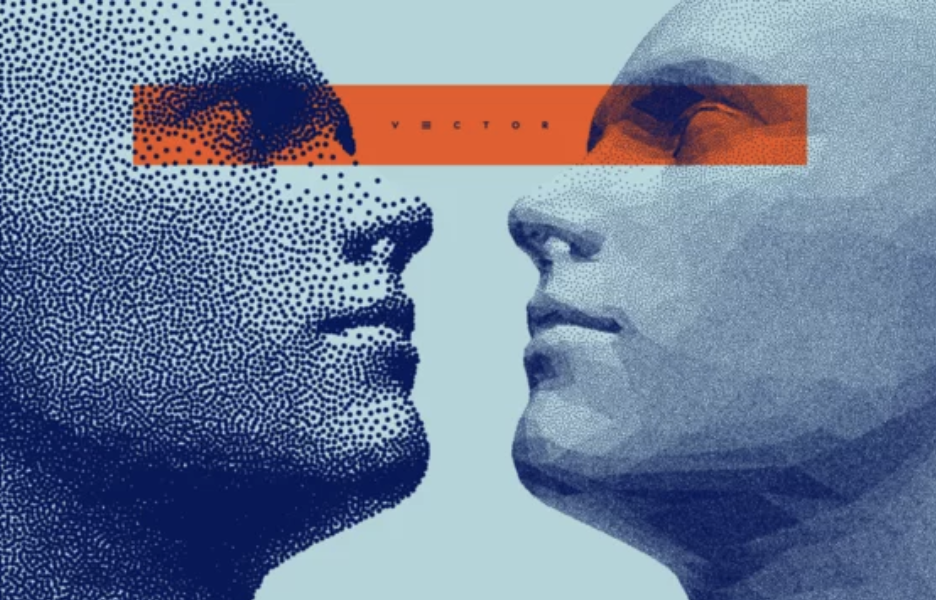What happens tomorrow? That’s the nut every business on the planet is trying to crack.
At Navigate, we don’t presume to have all the answers—but we do have expectations, fact-based opinions, and forward-thinking people, including Eileen Bartholomew, our newest partner (and future-focused ponderer). She has been leading change in the face of change her entire career.
As an accomplished consultant, inclusive business strategist, innovative technologist, and design thinker, Eileen has developed opinions grounded in fact and inspired by the general zeitgeist. Her views about what’s happening out in the world and how we need to respond to it form a framework for how she approaches complex business problems, from how companies can use data to improve their customer and brand experience to what steps they should take before investing in a new technology solution.
We sat down with Eileen to discuss her thoughts on the exponential pace of change, how businesses can better understand and listen to their customers, and why she’s excited about creating opportunities for Navigate’s clients.
You believe that the future is accelerating “faster than we think.” Can you walk us through what you mean by that?
Undoubtedly, the future is moving much faster than any of us can imagine. The reality is that dozens of exponential technologies—AI, machine learning, robotics, and digital biology, to name a few—have reached a point where they are changing the fundamentals of business, government, society, and our daily lives right now and into the future.
The biggest problem is that it’s hard for any of us to see this disruption coming. Our brains are designed to think, and change, linearly, but technology is morphing our world at the pace of exponential change.
To put that in perspective: If I took 10 steps linearly, I’d travel a distance of about 30 feet. But, if I took 10 steps exponentially, I’d get 26 times around the Earth. The difference between those two perspectives is where stress—and opportunity—happen for business.
Exponential growth and change will impact every industry and company, including the organizations we work shoulder-to-shoulder with. We must guide our clients to think and act in different ways. And I’m thrilled to be part of an organization that understands this and how it affects all facets of our clients’ businesses.
How can companies embrace the future—opportunities, uncertainties, and all—without risking too much of their businesses?
We can all take comfort in knowing it’s impossible to predict the future; Navigate’s crystal ball is no clearer than anyone else’s! But this doesn’t give us a pass to just wait for the future to happen to us: We can and must give shape to our futures. So we work closely with clients to pilot, build, and experiment their way through change and uncertainty.
A key way to do this is to focus on the human behavior you’re trying to change, not the latest technology headlines. Human action is the most basic element of business: Whether it’s customer activity or employee participation, the underlying goal is to influence people to change how they act. Every meaningful mission, solid team, and sound business decision must revolve around people. That’s why it’s imperative to ask impactful questions about what you want to see changed. Then you can figure out the best solution or technology to help you do that.
Speaking of people, let’s chat about customers for a moment. How much data is enough to make good decisions about your customers, and how can the right tools help?
There’s a misconception that you need a ton of great data to understand your customers. However, in reality, you can have a small amount of (even imperfect) data that’s well understood and still use that to extract meaningful insights into customer behavior. Don’t let the amount or quality of data prevent you from using it regularly. The more you do, the more you learn. The more you learn, the more quickly you can adjust how and where you capture, track, use, and act on that data.
Take the Apple Watch, for instance. Now consumers can get the type of information about the heart—like abnormal rhythms—that used to be attainable only by their cardiologist. This de-skilling and democratization of information is happening everywhere. On the customer listening side, learning how to do this is becoming more effective, cheaper, and accessible. You don’t have to go out and buy independent, costly systems. There are many social listening tools (social media included) that are very lightweight, inexpensive, and can give you context quickly.
A great example is how anyone can now use large language models (like ChatGPT) for social listening and reporting, including monitoring social media conversations about your brand, products, or industry. This can help you stay on top of customer feedback, identify emerging themes, and get real-time performance insights.
What drew you to Navigate, and what excites you about the future for our clients?
Margaret Mead was right when she said, “Never doubt that a small group of thoughtful, committed citizens can change the world; indeed, it’s the only thing that ever has.” Because powerful exponential technologies are cheaper and more accessible than ever, we don’t have to rely on big governments or Fortune 100 companies to see that change happen. Instead, change happens today in small-but-mighty firms like Navigate, where people can say and believe, “We’re going to do it differently, and we can be fast enough to make it happen.”
A great team is the last competitive advantage in the world today. Patrick Lencioni said it best: “Not finance. Not strategy. Not technology. Teamwork remains the ultimate competitive advantage because it is so powerful and rare.”
Almost every other competitive advantage can be bought, acquired, or integrated—and that’s often only within the purview of big organizations with lots of resources. But teams cannot be copied; they have to be made. That’s the great, hard work we do daily here, and I’m honored to be part of the journey.

